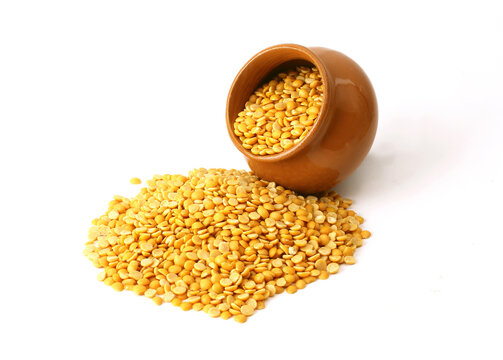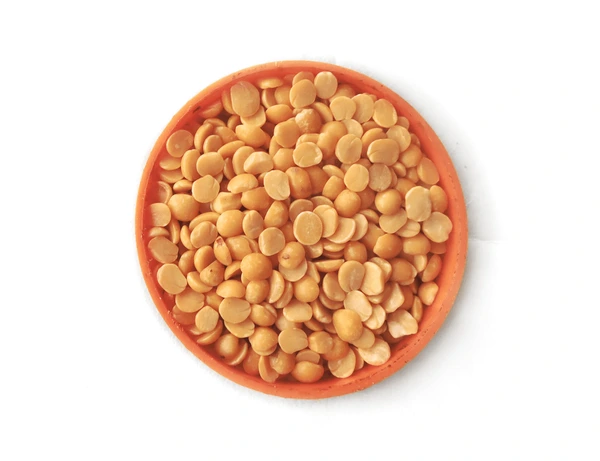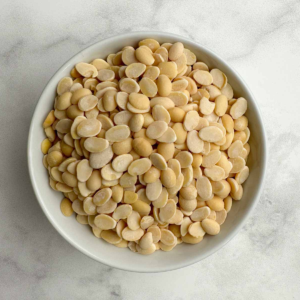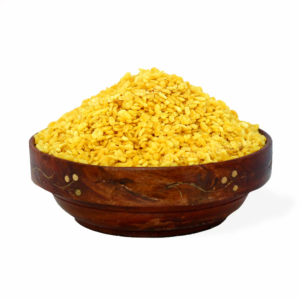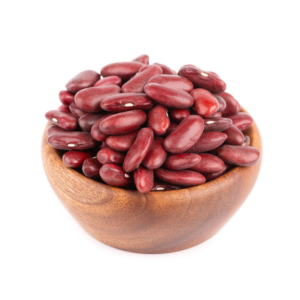Description
Pigeon peas are small, oval-shaped legumes that can be either yellow or brownish in color. They are often referred to as Toor Dal in Indian cuisine and are frequently used in the preparation of Dal Tadka and Sambar—both signature dishes in Indian cooking. When dried, these peas are split into two halves, resulting in the yellow Arhar Dal, which cooks quickly and is rich in protein and other essential nutrients.
Nutritional Profile of Pigeon Peas (Arhar Dal):
Pigeon peas are highly nutritious and provide a wide range of essential nutrients. A 1-cup serving (approximately 200 grams) of cooked pigeon peas (Arhar Dal) contains:
- Calories: Approximately 200-250 calories, depending on cooking method.
- Protein: Pigeon peas are an excellent source of plant-based protein, providing about 10-12 grams of protein per cup. This makes them an essential protein source for vegetarians and vegans.
- Carbohydrates: Around 40-45 grams of carbohydrates, including 15-18 grams of dietary fiber. This high fiber content aids digestion and supports a healthy metabolism.
- Vitamins: Pigeon peas are a good source of B-vitamins, particularly folate (B9), thiamine (B1), and niacin (B3). These vitamins are essential for energy production, brain function, and red blood cell formation. They also provide Vitamin C, which helps in immune function and skin health.
- Minerals: Pigeon peas are rich in minerals such as iron, magnesium, potassium, phosphorus, and zinc. Iron is important for oxygen transport in the blood, while magnesium and potassium support muscle function and cardiovascular health.
- Antioxidants: Pigeon peas contain antioxidants like flavonoids, polyphenols, and carotenoids that help neutralize harmful free radicals in the body, reducing inflammation and protecting cells from oxidative damage.
Health Benefits of Pigeon Peas (Arhar Dal):
1. Rich Source of Plant-Based Protein:
Pigeon peas are an excellent plant-based protein source, making them a great addition to vegetarian and vegan diets. With approximately 10-12 grams of protein per cup, they support muscle growth, repair, and overall cellular function. Protein is also vital for immune health and enzyme production.
2. Supports Digestive Health:
The high fiber content in pigeon peas (Arhar Dal) promotes healthy digestion by adding bulk to stool and facilitating regular bowel movements. Fiber helps prevent constipation and supports the growth of beneficial gut bacteria, which is crucial for maintaining a healthy gut microbiome.
3. Stabilizes Blood Sugar Levels:
Pigeon peas have a low glycemic index, meaning they release glucose slowly into the bloodstream, helping to stabilize blood sugar levels. This makes them an excellent food choice for people with diabetes or those looking to manage their blood sugar levels. The fiber content also helps slow the digestion and absorption of sugars, further supporting blood sugar control.
4. Promotes Heart Health:
Pigeon peas are heart-healthy due to their high fiber, potassium, and magnesium content. The fiber helps reduce bad cholesterol levels (LDL), while potassium and magnesium support healthy blood pressure regulation. Regular consumption of pigeon peas may reduce the risk of cardiovascular diseases, including hypertension and stroke.
5. Enhances Immune Function:
Pigeon peas are rich in antioxidants, including Vitamin C and flavonoids, which help strengthen the immune system. Vitamin C plays a crucial role in boosting white blood cell production and combating infections. Antioxidants also protect the body from oxidative stress, which can contribute to chronic diseases.
6. Aids in Weight Management:
Due to their high protein and fiber content, pigeon peas promote feelings of fullness, which helps control appetite and reduce overeating. The combination of protein and fiber makes pigeon peas a great addition to a weight management plan, as they provide satiety and help regulate food intake.
7. Rich in Iron:
Pigeon peas are an excellent source of iron, which is essential for the production of hemoglobin and the transport of oxygen in the blood. Consuming pigeon peas regularly can help prevent iron deficiency anemia, a condition characterized by low red blood cell count and fatigue.
8. Supports Bone Health:
Pigeon peas are a good source of calcium, phosphorus, and magnesium, all of which are essential for maintaining strong bones and preventing bone-related issues like osteoporosis. The minerals work together to promote bone density and support healthy bone structure.
9. Detoxifies the Body:
Pigeon peas have natural detoxifying properties, as they help remove toxins from the body and support kidney function. The high fiber content aids in flushing out waste from the digestive system, while antioxidants assist in cleansing the body at the cellular level.
10. Improves Skin Health:
The antioxidants in pigeon peas, including Vitamin C and flavonoids, help protect the skin from damage caused by free radicals and environmental stressors like UV rays. They also help in the formation of collagen, which is essential for skin elasticity and reducing signs of aging, such as wrinkles.
How to Use Pigeon Peas (Arhar Dal):
- Dal Tadka: One of the most popular ways to use pigeon peas is in Dal Tadka, where Arhar Dal is cooked with spices such as cumin, turmeric, garlic, ginger, and coriander. This dish is commonly served with rice and is a staple in Indian cuisine.
- Sambar: Arhar Dal is a key ingredient in Sambar, a tangy and spicy South Indian lentil soup made with vegetables and tamarind. It is often served with rice or idli (fermented rice cakes).
- Soups and Stews: Pigeon peas can be used in a variety of soups and stews, where they can be simmered with vegetables and herbs to create a flavorful and nutritious meal.
- Curries: Pigeon peas are often used in curry-based dishes, where they are cooked with spices, tomatoes, and other vegetables. Popular dishes include Toor Dal Curry and Dal Fry.
- Salads: Cooked pigeon peas can be added to salads for an extra boost of protein and fiber. Combine them with fresh vegetables, herbs, and a tangy dressing for a refreshing and healthy dish.
- Pigeon Pea Patties: Pigeon peas can be mashed and combined with spices, breadcrumbs, and herbs to form patties. These patties can be fried or baked for a healthy snack or appetizer.
- Stuffed Paratha: In Indian cuisine, Arhar Dal can be used as a filling for stuffed parathas (flatbreads), often mixed with spices and herbs to create a hearty and flavorful meal.
- Vegetable Pulao: Arhar Dal can be added to vegetable pulao (rice), where it enhances the nutritional value and provides additional protein.
- Chili and Chili Con Carne: Pigeon peas can be used in vegetarian chili or chili con carne recipes, offering a meaty texture and satisfying taste.
Considerations:
- Soaking: Soaking pigeon peas (Arhar Dal) for a few hours before cooking can reduce the cooking time and improve digestibility. However, it is not necessary for split pigeon peas (Toor Dal).
- Storage: Dried pigeon peas should be stored in an airtight container in a cool, dry place. They can last for several months if stored properly. Cooked pigeon peas can be refrigerated and consumed within 3-4 days.
- Allergies: Pigeon peas are generally safe for most people, but individuals with allergies to legumes should exercise caution when consuming them. Symptoms of an allergic reaction may include itching, swelling, or difficulty breathing. Seek medical attention if any allergic reactions occur.
In Summary:
Pigeon peas (Arhar Dal) are a highly nutritious legume rich in protein, fiber, vitamins, and minerals. They offer numerous health benefits, including supporting heart health, digestive health, immune function, and weight management. Pigeon peas are versatile in the kitchen and can be used in a variety of dishes, including dals, soups, curries, and salads. Whether you enjoy them as a main dish or a side, pigeon peas are a valuable addition to any diet, providing essential nutrients that promote long-term health and wellness.


